#it was like comparable to evangelion in terms of LACK OF CONTEXT
Note
Hi! As someone who now kinda wants to check out Trigun because of the hype, do you recommend that I can start with Stampede? Or do I really need to watch the OG anime first to better understand/enjoy it? Thank you! 🙋🏻♀️
you can start with stampede! i'd say knowing the context of the original enhances the experience but isn't necessary to enjoy the show. I would consider stampede more viewer-friendly, especially for those of us who are used to modern storytelling conventions (the original suffers the consequences of general writing trends in anime at the time it was produced and of the fact that it was produced long before the manga was finished, so the story is somewhat disjointed and has a lot of filler which makes it REALLY hard to get into.) if you do end up liking stampede, however, I'd suggest trying out watching at least SOME of the original because it adds a lot of cool nuance and context to the story that stampede tells!
#your only REAL handicap is that you're missing out on references that clue you into the context of the story early on#and quite a few references in the finale. but none of those references are hugely necessary to understand the plot so you should be fine!#i didn't DISLIKE the origial and like i said im glad i watched it first but it was. REALLY hard to get into.#even as someone who understands writing trends & enjoys a lot of older anime trigun is. a product of its time.#there's almost no context given for the story you're witnessing until a good 20 episodes in.#the main villain isn't named at all until halfway through the runtime#and even TWO EPISODES BEFORE THE FINALE i still did not have enough information to fully understand what the hell was going on#vash was going into the final fucking battle and i still didn't know what knives WAS let alone what the fuck he WANTED#not to mention nick was FULLY DEAD and i still didnt know what his deal was. like ok go off king have ur moment bleeding out in the church#but can you EXPLAIN WHATS GOING ON BEFORE YOU SUCCUMB TO THE BLOOD LOSS PLEASEEEEEEEE GOD#stampede does that whole thing WAY better imo. it sprinkles the backstory more naturally throughout the show#again. part of this is 90s writing conventions. but there's only so much i can take fr#it was like comparable to evangelion in terms of LACK OF CONTEXT#anyways. this isnt supposed to be me complaining about the original. it had its moments. i watched 24 episodes of it like it was not BAD#but like. i think the story really benefits from the way that stampede chooses to lay everything out. is what im saying.#tldr watch them in whatever order but if you like stampede try the original#you might not like it more than stampede but you WILL feel cool when you realize how it all relates to stampede#asks#vash is also WAAAAAY sexier in stampede. HOWEVER. the women of the show are like 10 times sexier in the original. so. pick your poison ig
34 notes
·
View notes
Text
The foreword to Episode 19 in Renewal refers to it as a "conclusion to the story of Shinji's growth" which I think is interesting especially in the context of the episode's title, the menu commentary on Shinji's will or lack thereof to "become a man", and of course the way the roughly analogous sequence in Eva 2.0 is portrayed.
The direction of Episode 19 portrays the conclusion, at least, as rather menacing and horrific, but in terms of the series structure it seems the episode as a whole was intended as a moment of growth or coming of age. Moments of triumph followed by tragedy are, of course, prevalent in Evangelion - see also Kaji's death in Episode 21, Rei II's "recognition scene" in Episode 23, and Asuka, Misato, and Ritsuko's respective moments of self-actualization prior to their deaths in The End of Evangelion. Even Kaworu's brief "character arc" in Episode 24 could conceivably be viewed this way - he realises that he loves Shinji, and sacrifices himself because of it, in a manner comparable to Rei II.
Viewed as contiguous with the above scenes, Shinji's decision to embrace his "man's battle" and pilot Eva-01 again before being absorbed by her feels like it fits quite well, to me.
1 note
·
View note
Text
Evangelion 3.0 + 1.0: Thrice Upon a Time (dir. Hideaki Anno)
-Jere Pilapil
I can’t describe how satisfying an ending (for now…?) this movie is for Neon Genesis Evangelion. I’ve watched the TV series, watched the movie that revised the ending, read the manga (by Yoshiyuki Sadamoto) and watched the Rebuild of Evangelion series. In some ways, fans have watched these characters live through hell 3, maybe 4, maybe more times. And I think creator/director Hideaki Anno is trying to express something that’s hard to express, each time he returns to the series.
The end of the TV show gets deeply abstract in its last two episodes, mostly featuring the characters talking in circles, analyzing each other. Really, it feels more like Anno is trying to sort out his thoughts for himself, using the characters to bounce his contradictory thoughts and emotions off each other. Compared to the show that preceded it, it’s at least jarring and kind of gives up on the characters in favor of making his point. The animation is deeply limited: often repeated images of the characters speaking with a black background while flashes of text prod the characters, asking questions and offering contradictions. Throughout, we see some shots of an empty theater setting (stage, lights, curtain). Shinji gets a happy ending here, but it feels weird and unearned. I can see why fans were critical of it. (The anime Bakemonogatari made these episodes its entire aesthetic.)
The End of Evangelion gave Anno another opportunity to end the series, and this one makes things much clearer, both in terms of what happened with all the giant robot shit and easing the audience into Anno’s philosophical questioning. The first half picks up where the 24th episode of the series ended and actually writes a reason for Shinji’s perspective to become abstract (to get deep into the details would both be a spoiler and require too much explanation). Here it becomes clear that some of the approach in the series was not, as rumored, a budget issue: Anno tears away the artifice of film with shots of empty and full movie theaters, a live action intrusion on the animated movie. Some parts of it feel like it’s wagging a finger at the audience that rejected the original ending. The ending is more ambiguous, tonally, but more satisfying than that of the TV show.
So Evangelion 3.0 + 1.0: Thrice Upon a Time (it’s 1.1 on Amazon due to minor revisions again between the Japanese and international releases. Art is never over!) ends the series once again. And in some ways, the three preceding movies diverted greatly but wound up in the same place: this is an abstract investigation on what it means to be human and to know humans. It’s about what it means to need a community and to know that proximity leaves you open to pain. But much like an musician revisiting an old song or Walt Whitman republishing Leaves of Grass, time gives the creator new understanding. Hideaki Anno was in his 30s at the time of the TV series and is 61 now. He’s a different person now, it would seem (and I would hope). That extra time gives this revision a gentler, more serene tone than the previous endings.
It’s a wonderful, open-hearted work. All of Neon Genesis Evangelion is, really, wearing its scarred, depressed, anxious emotions on its sleeve at all times. But this one winds up in a place that’s so much more poetic, straightforward without dumbing it down for the audience at all. As much as the mythology (the spears, Lilliths, Adams, Impacts, Instrumentality) can be confusing, emotionally, the series has always told the audience exactly what emotions it’s trying to convey in exact language. It’s just that there’s always been so much that it sometimes doesn’t leave room for much else but a torrent of words and ideas.
But that’s just the end. The rest of the movie is incredible, too. Following up from the end of 3.0, Shinji, Rei and Asuka spend the first hour of the movie living in an idyllic village. The world has near-ended a few times over at this point, so life isn’t easy. But the villagers our protagonists meet are so sweet and optimistic, I almost wish this movie could have been 2.5 hours of these characters living in tranquility. The giant robot fights are the hook, but Neon Genesis Evangelion has always done slice of life, small stakes interpersonal drama so much better. Of course, the giant robot fights accentuate and inform the quiet emotions of the smaller moments.
In the context of this movie, the action is a little more chaotic; in some bad ways a later setpiece it reminds me of The Rise of Skywalker, lacking in gravity (both literally and metaphorically) and feeling “epic” of the sake of “being epic”. But it’s also a love letter to the Evangelions - one last shot at choreographing some fist-pumping, ultra-cool moments for our pilots. And they lead directly into revelations and send-offs for some characters, fitting and beautiful and tragic all at once. It’s not perfect, but I get it.
The end of the movie, though. I’ve been thinking about it all day. It made my hear swell, soundtracked by a perfect Hikaru Utada song. Evangelion 3.0 + 1.0 works as a fitting “goodbye” to a beloved series, sure, but it’s also a tribute to the power of time to mature and clarify. Beautiful.
3 notes
·
View notes
Text
You Can(Not) UnGay Kaworu Nagisa - An Essay
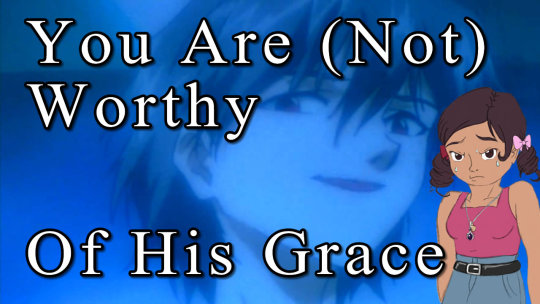
This is a text-version of my video-essay on the recent Netflix/Evangelion translation controversy. To see the video version, please click here!
I make no secret of the fact that the linguistics involved in Anime and Game translation are one of my primary fields of interest as a Japanologist. Compared to translation between Germanic and Romanic Languages, as the west is used to it, translating from Japanese to English is filled with a plethora of pitfalls, the likes of which can be very difficult to imagine unless you’re fluent in both languages.
It’s because of this that my interest in any given AniManga controversy immediately skyrockets as soon as the matter of translation issues is brought up. Which brings us to June 21st’s release of Netflix’ Redub of Studio Gainax’ internationally infamous existential creator meltdown disguised as a Mecha Anime, Neon Genesis Evangelion.
1.) Neon Genesis ADVangelion
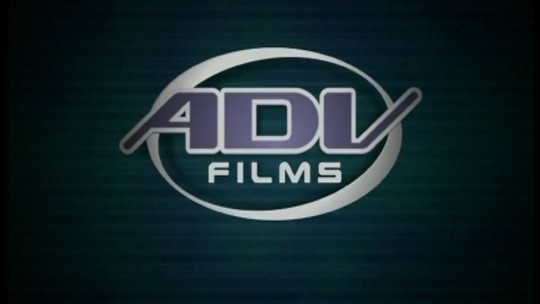
For those among you who haven’t yet heard of this inherently controversial work – what rock do you live under and does it still have vacancies? In all seriousness though, enough videos attempting to summarize the plot of NGE exist on the internet to make giving the rundown here an exercise in redundancy. All you need to know is that the protagonist’ name is Shinji and that he’s a mental-wreck with Daddy Issues who pilots a giant cyborg infused with the soul of his dead Mom to fight surrealist alien abominations and gains an increasingly screwed up social life doing so, all while his already fragile psyche gradually declines to world-ending consequences. For far less fatalistic takes on some of these concepts, please see RahXephon and Tengen Toppa Gurren Lagann. Good? Good. Let’s move on.

The original ADV Films dub of Neon Genesis Evangelion and its sequels and spin-offs is… not really flawless, to say the least, but it did a good job in introducing the series to a western audience while staying entirely true to the themes and intentions of the original version. This is definitely at least partially thanks to the fact that director and auteur of the series, Hideaki Anno, personally oversaw the translation and dubbing process, and while the guy in all honesty doesn’t really know the first thing about voice acting – his performance as Jiro in The Wind Rises is one of the reasons it’s my least favorite Ghibli movie – what he does understand is his own work, and what it should convey to the audience in order to be authentic to his vision. So while I do have my issues with the ADV dub, such as poor audio-quality and hopeless cases of overacting caused by poor voice direction in certain parts, the translated script of the series was as stellar as could be expected from something created with the original author’s input, and to the very end of the original 26 episodes run, one can definitely feel the deep, emotional investment every single member of the English cast had in these characters and their journey. (I mean. Just listen to Spike Spencer’s secret rant in the end of the last episode. The dude clearly cares about what happens to Shinji.) In any case, this is probably one of the most influential, iconic dubs to all of the English-speaking Anime Fandom.
Then Netflix decided to license NGE. Not the ADV Dub. Just the show.
People were not happy.
2.) The Rebuild of Netflixgelion

Please do not mistake what I’m saying for pedantic. The iconic nature of the original ADV dub of NGE cannot be understated, and plays a huge role in the current lack of acceptance for the Redub, even though previous similar redubbing efforts, such as in the case of Bishoujo Senshi Sailor Moon, where welcomed by the community wholeheartedly. The new dub cast is absolutely stellar, including voice acting veterans such as Carrie Keranen and Erica Lindbeck, and Casey Mongillo’s amazing vocal range goes a long way to replicate and convey the emotional depth of Shinji Ikari in a way previously only seen in Megumi Ogata’s original Japanese performance.However, while the Netflix dub has a wonderful cast and voice direction, what it does not have is the original dub’s Hideaki Anno-approved script.
…Aaaaand, this is where the real troubles start.
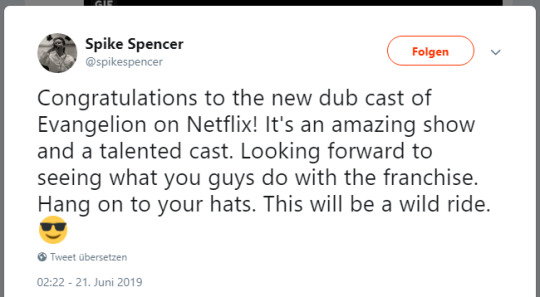
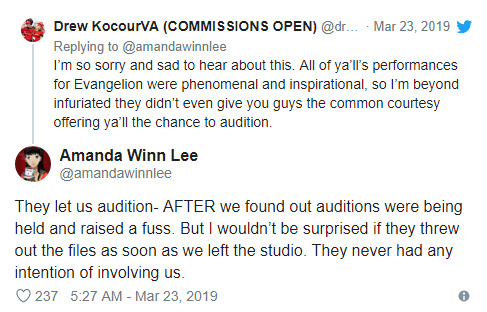
To be totally clear, the redub always meant trouble. The original voice cast were reportedly never given a real chance to reprise their roles- despite efforts made by the main trio, Spike Spencer, Amanda Winn Lee and Tifanny Grant to at least be given a chance to audition – which is a surefire recipe for upsetting a lot of fans. However, this is a problem that could have at least been partially smoothed over after allowing the performances of the new cast to shine in their own right. I mean, even if it is incredibly scummy to not even inform the old cast of the auditions for the redub, if the new version proves to contain superior performances and direction in comparison to the, honestly badly-aged ADV dub, then Netflix’s decision to make an entirely new dub is entirely understandable, right?
No such arguments can be applied to the retranslation of the show’s script.
3.) The End of Authorial Intent
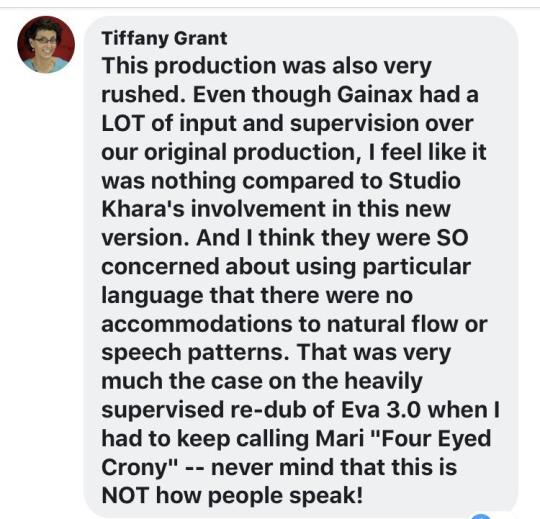
I haven’t rewatched the entire show in the new dub, just two key episodes. That said, I wouldn’t dream of calling the new script ‘bad’. It’s, for the most part, natural and faithful to the original Japanese source text in much the same way the ADV dub was, to the point that some stray lines received identical translation in both versions. What gives the new script away as entirely unrelated to that of the ADV dub, however, are some rather… baffling localization choices.
All of those decisions are rooted in the original Japanese script. They’re not incorrect translations. If the Japanese were to be your only point of reference, there would be no reason to complain about these choices.
But we do have a point of reference. The ADV script. Which was overseen and approved by Hideaki Anno. The original director.
In the making of this video, I have since learned that Anno’s animation company, Khara, was most likely involved in the translation of the script for the Redub. However, as I can’t find any evidence that he himself was involved, the point I am about to make still stands:
Back in the 90s, very shortly after the show concluded its original run, Anno personally signed off on every single choice the ADV dub made. The respective pronunciations of Nerv, Seele and Gehirn, calling the EVA pilots by the correct singular “Child”, rather than the awkward Engrish singular “Children” the original Japanese featured, and referring to the enemies consistently as Angels, even in parts where the original Japanese mixed up the terminology for the sake of a pun with Kaworu’s name.
So, all of the ADV localization changes are within the intent of the original author. They are part of how the show is meant to be consumed by a western audience. Not carrying over this terminology, despite it being faithful to the Japanese script, thus ironically makes the Netflix script LESS faithful to Anno’s authorial intent than the ADV dub. But those are only terminology changes, right? They’re not a big deal. They don’t alter the context of the narrative itself.
…
Kaworu Nagisa.
4.) Kaworu Nagisa

Remember how I mentioned that I only really watched two episodes of the Netflix dub all the way through so far? Well, one of those two episodes happens to be one of the series’ most infamous, right after the two-part finale: Episode 24. “Knockin’ on Heaven’s Door”, or “The Final Messenger” – Let’s not get hung up on which it is, Evangelion has ALWAYS been weird with titles.
This Episode introduces Kaworu Nagisa, the fifth of the EVA pilots and long-time fangirl-favorite for not-so-subtle reasons. Kaworu appears as Shinji is at his lowest point, our main protagonist’s already pretty much non-existent self-esteem in shambles. The two boys bond immediately over… the fact that Kaworu can sing ‘Ode to Joy’? Yeah, let’s go with that – And the majority of the episode consists of showcasing the growing relationship between Kaworu and Shinji, beginning with simple conversations, but quickly progressing into some more… serious territory.
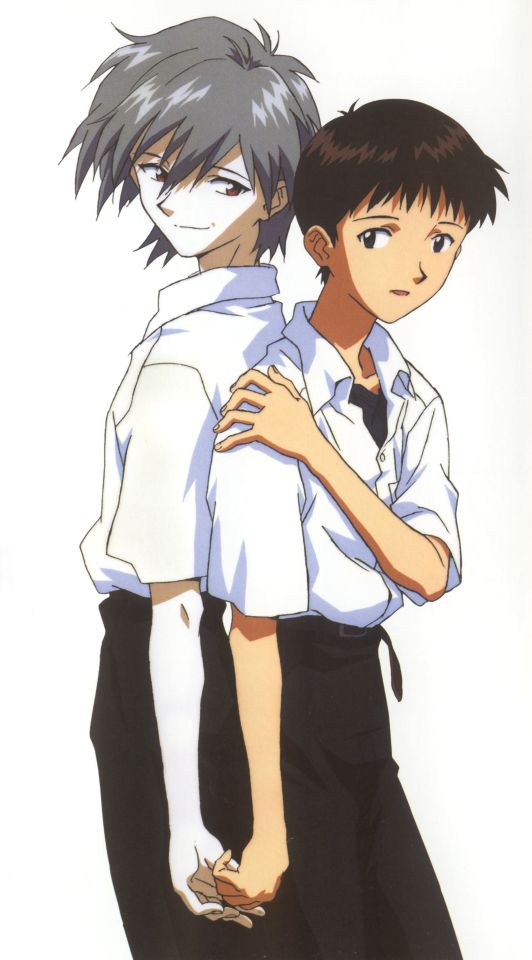
I won’t sugarcoat things, in terms of narrative structure, the episode is a mess, rushing from scene to scene with reckless abandon, attempting to successfully tell a story in under 25 minutes, that some Disney Movies don’t tell right in 90+ minutes. This is doubtlessly due to the overall mess that NGE’s production process had become at this point in its original run for reasons too complicated to talk about in this video, but let me assure you that there’s pretty solid evidence that Kaworu was definitely originally meant to appear for much more than a single episode. As it stands, however, he dies in the same episode he is introduced, begging Shinji to assist him in his suicide after revealing himself to him as the final Angel. His effect on Shinji, however, is profound and comparable to the effect Nia Teppelin of Tengen Toppa Gurren Lagann has on that show’s protagonist, Simon Giha. In that way, just as with Nia later, it is plain as day that Kaworu is intended to be one of Shinji’s love interests. And the episode is NOT subtle at all in portraying him as such.
A lot can be said about the exact nature of Kaworu’s affection for Shinji, from Kaworu clearly seeing Shinji as some sort of avatar for humanity as a whole on which he projects his admiration for the species, to Shinji seemingly falling victim to an idealized Oedipus Complex in regards to his perception of Kaworu, the fact remains that their interactions with one another in Episode 24 are in places obviously romantic to even sexual in not only the dialogue, but also the visuals. Even with Hideaki Anno’s profession that Shinji’s romantic feelings for Kaworu aren’t “carnal”, they’re still obviously there. Projected and skewed by their unusual psyches as aspects of it may be, the relationship between them is clearly portrayed in a way that transcends the platonic and becomes intimate more quickly than your seafood friends can start singing ‘kiss the guy’ on a romantic boat ride – It’s not subtext, you guys. Towards Shinji Ikari, Kaworu Nagisa acts and speaks quite openly like one would speak to a lover. And even if Kaworu and his ambiguous humanity are somehow not gay enough for you, well, resident violently blushing and stuttering smitten wreck Shinji Ikari will put your doubts to rest. The visual homosexual (homoromantic?) tension in these scenes is so tangible, you can cut it with a knife. The dialogue, at certain points, doesn’t even really matter. Kaworu could quite literally be reading off the grocery list, and these scenes would STILL be gay.
That doesn’t mean the dialogue is not important, and that one shouldn’t really, really pay attention to what’s on screen when translating.
5.) The Final Angel is in the Detail
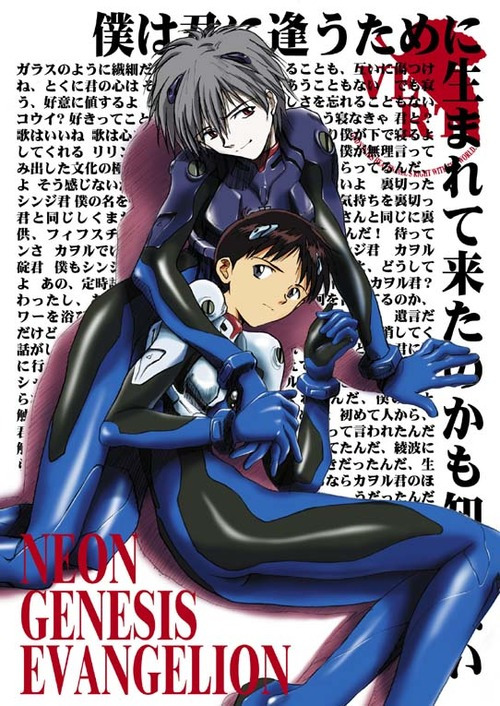
The translation of Kaworu’s words to Shinji in the Netflix dub is not wrong. But it ignores the context of the scene, as well as authorial intent. And that’s why I understand why people are angry at it.
The lines in question are these :
(Scene 1)
Kaworu: そう、好意に値することよ。
Shinji: 好意?
Kaworu:「好き」ってこと、さ
(Scene 2)
Shinji: カヲル君が「好きだ」って言ってくれたんだ。僕のこと。初めて…初めて人から「好きだ」って言われたんだ。
In the ADV dub, these lines were translated like this:
(Scene 1)
Kaworu: This is worth earning my empathy.
Shinji: Empathy?
Kaworu: I’m saying “I love you.”
(Scene 2)
Shinji: Kaworu said that he loved me. I’ve never... felt such kindness before.
In the Netflix dub, however, they were translated like this:
(Scene 1)
Kaworu: Yes, you’re worthy of my grace.
Shinji: Your grace?
Kaworu: I’m saying “I like you.”
(Scene 2)
Shinji: Kaworu said I was worthy of his grace. That was the first time... someone told me they liked me.
Which one of these is right? The fact is… both are.
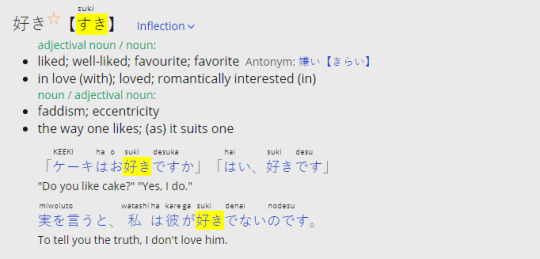
The Japanese term “ 好き ” doesn’t really have a direct equivalent in English. It holds a connotation that is meant to convey very personal, but broadly defined affection. It doesn’t simply mean “to like something”. It means to feel a strong, positive, emotional connection to that person of thing. For that reason, this term can be used to profess affection to your friends, your family, your favorite item… Or as a love-confession.
In Japan, love-confessions using “ 好き ” are a lot, lot more common than the much, much stronger term “愛する”, let alone the implicitly sexual term “恋する”. In most romance Manga, “ 好き ” will be the term of choice the heroine uses to confess her love to her object of affection. And though, via character analysis, a strong argument can be made that when Kaworu uses “ 好き ” to express his affection for Shinji, he means general affection towards Shinji’s humanity more than personal, romantic affection, this is clearly not how Shinji takes Kaworu’s words. To Shinji, what Kaworu said in that moment, definitely sounded like a confession of romantic devotion, which becomes very, very clear when Shinji later tells Misato:
Shinji: 初めて人から「好きだ」って言われたんだ。
With the line being translates as “I like you”, this statement of Shinji sounds like pure delusion, which wouldn’t be out of character for him, of course, but isn’t at all what the episode is trying to get across. Of course people have told Shinji before they ‘like’ something about him! That’s a big part of the reason he started defining himself through his status as pilot of EVA Unit 01; his efforts earned him praise from those around him. He had friends for most of the series, at least implicitly, these people have definitely expressed a ‘liking’ for him. So by translating “好き” as “like” in this context, a whole layer of the statement is lost, and Shinji professing that this was the first time anybody has ever said that they “like” him sounds less like a serious revelation about his character, and more like his typical, delusional whining about how the world hates him.
And I think that’s why Anno signed off on the ADV dub translating the line as “I love you” rather than “I like you”. Because the point of this line is not Shinji thinking that Kaworu is the only person who’s ever tolerated his presence. It’s that Shinji feels like Kaworu was the first person to ever have a genuine, emotional connection to him. Something he’s never allowed himself to have, due to the series’ often cited theme of Hedgehog’s Dilemma.
And, as correct as translating “ 好き ” as “like” is, a whole dimension of Episode 24 of NGE is entirely lost if you choose to translate Kaworu’s lines that way. As much sense as it technically makes.
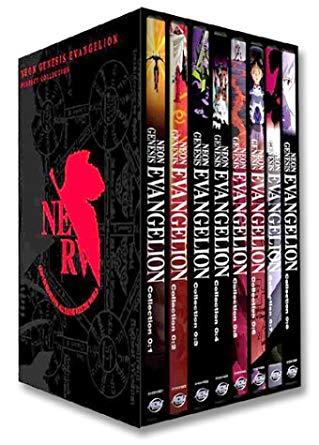
The Netflix dub of NGE, by all measures known to me, is a very well-acted, well-directed, well-translated version of a classic piece of Animation History. I am not telling anyone that it is in any way bad or even inferior to the original, and I am not telling anyone to avoid it.
All I am saying is, that if you, as a translator, have access to references regarding authorial intent you should probably use them.
#netflix evangelion#neon genesis evangelion#shin seiki evangerion#Kaworu Nagisa#Neni Talks#Neni Theory#Lost in Context
99 notes
·
View notes
Text
A Slice of the Tree of Life
A Slice of the Tree of Life
So I've talked a lot about my view that what Christians should be looking forward to is The Resurrection, not an "After Life". That the perfect Utopia we are promised is not contemporary Heaven but This World restored to something like how it was before the fall.
That to me the true point of the difference between The Gospel and Paganism and is that Pagan myths like those of Gilgamesh, Orpheus or Izanami and Izanagi are about accepting death as a natural part of Life, while The Gospel promises that no Death will be defeated and one day no longer exist. The Second Death is the Death or Death.
Many people who aren't Christians out there however view neither what I just described or the more casual Christian understanding of the "After Life" as desirable. They feel it is grossly naive to think such a condition would be a good thing. In Season 4 of Angel, (the spin off of Buffy The Vampire Slayer), what Jasmine is trying to accomplish was essentially how Joss Whedon views Revelation 21 and 22.
I get the sense that at least some Western viewers of Anime probably have the same view about Human Instrumentality in Neon Genesis Evangelion and End of Evangelion (and the many evil schemes in Anime since that are kind of similar, like most recently *Spoiler Alert* what the Taisha wanted to do in Yuki Yuna Is A Hero season 2). Though there is certainly no Biblical Basis for the rejection of Individuality inherent in that plan. It's far more likely that it's The Beast and the False Prophet trying to achieve something like that with their Mark system.
Back on topic, the argument for why this should be viewed as bad is typically that there is no freedom or growth in a such world, that conflict and difficulty is necessary for that. (So it's funny that sometimes the exact same people make the "why does God allow Evil to exist" argument).
It's pretty difficult for us to even imagine what such a world would be like. But I definitely view that criticism as an over simplification. For one thing there is this Quote from Revelation 22:2
"the tree of life, which bare twelve manner of fruits, and yielded her fruit every month: and the leaves of the tree were for the healing of the nations."
Emphasis on the word Healing. This shows that things are not exactly done. And I personally believe new children will be born during this era as well. A certain thing Jesus said about the Resurrection in Matthew 22 is commonly misunderstood ignoring Jesus actual point. Adam and Eve were supposed to be fruitful and multiply, so if we're restored to that state, it includes that command.
I feel like these criticisms of the world presented in Revelation 21&22 (The Millennium in chapter 20 I don't even view as a true Utopia, but more as a Benevolent Dystopia. Has that term been used before or did I just invent it?), however morally they word it, essentially comes down to them saying they think it would be BORING. Like the common rather tong in cheek presentation of traditional heaven as us just sitting around all day on clouds playing harps while hell is a party.
I don't want to be bored either. I used to spend a lot of time radically declaring Superman Returns the worst movie ever made because to me it is the most boring. I am confident however that the New Heaven and New Earth will not be boring, but I've struggled with finding a good way to explain how. Till today.
Pause and Select is an Anime Analysis YouTube Channel. I just a little while ago, on the night of January 10/11th 2018, watched their four part series on Japanese Apocalypticism in Anime titled Understanding Disaster.
https://www.youtube.com/playlist?list=PL3itZ8UCAizGphd5_cOFylS38JFTV3-Ne
The fourth and final part is what's primarily relevant to what I have to say here. But the first three parts should be watched first for context, it is all interesting stuff. (When talking about Akira, the observation about Akira being the object of worship but Tetsuo being the one really running things happened to remind me of my own re-evaluation of the relation between The Beast and the False Prophet).
In the fourth and final part they make a connection between the development of Apocalypticism in Anime and a certain genre of Anime. They don't use this term in the video, but the genre in question is often most commonly called "Slice of Life". Fortunately much of the narration is subtitled in the video, especially when quoting someone else. So here is a pretty and informative screen-cap.
Compare that to Revelation 21:4.
"And God shall wipe away all tears from their eyes; and there shall be no more death, neither sorrow, nor crying, neither shall there be any more pain: for the former things are passed away."
Another key word used in this portion of the video is "healing", other videos about this genre also associate it with healing and soothing. But to me and many other fans they are absolutely not boring.
One mistake Pause and Select Makes is that K-On! in particularly is not lacking narrative. Digibro's praise of the show is all about it's subtle narrative arch and character development. Meaning there is growth. I'm surprised this video didn't mention Aria. It doesn't mention Girl's Last Tour because it was published over a year ago.
This genre of Anime has been favorite for awhile now, for many reasons. But watching this video just today caused it to click to me how maybe these Anime can also help me how explain the New Heaven and New Earth won't be boring. In theory these Anime exist in the present world and so we don't immediately think of them as being Utopic. But really they are narrative Utopias.
The video goes on to talk about other Apocalyptic Anime that looks cynically on the Slice of Life genre. But because of my Faith in The Bible, I know such a stable future will one day come.
Since I think this post may attract some Anime fans not familiar with what I usually talk about. I want to add a reminder here that I have become a Universalist, and so this coming Utopic Shin-Sekai will be enjoyed by everyone, not just believers. Even Nihilistic Atheists like Digibro.
#Anime#Bible Study#Tree of Life#Slice of Life#Moe#Yuritopia#Digibro#Pause and Select#Yuki Yuna Is A Hero#YuYuYu#Shinsekai#Utopia#Eschatology#Bible Prophecy#new heaven and new earth#Japan#Lucky Star#K-On!#K On#Aria#Girl's Last Tour#Cute Girls Doing Cute Things#New Jerusalem#iyashikei#Human Instrumentality#Joss Whedon#Evangelion#Jasmine#Angel#Paradise
0 notes